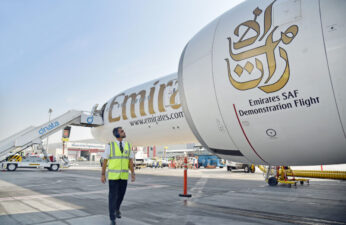
The Middle East has so much oil, but energy use is increasing. Applied Oil Technology and others could make oil use more efficient.
Until recently, much of the attention regarding amplified energy use has been directed towards China and India, but new data from GE indicates the Middle East is experiencing greater energy demands than any other nation. Why is this? As has been expected, global fossil fuel use continues to rise as a result of huge economic expansion, population growth environmental development. And the failure of alternative energies in developed nations to reduce sky-rocketing green house gases emissions, has allowed these gases to become more of a threat than ever.
Energy use in Iran, Oman, Qatar and Yemen have grown much more rapidly than China due population growth and the ever-increasing market demands. Yet while these nations do not rival the U.S. or China’s overall energy consumption, the speed of change is a frightening indicator of gas rate emissions that will be released into the atmosphere. This heightens the need to maximise efficiency and find long-term credible alternative fuels.
Much of the argument for the primary cause of greenhouse emissions has been focused on fossil fuels, while other possibilities for reduction have been overlooked. The price of alternative energy for instance, is not competitive with fossil fuels, making it impossible for Middle Eastern nations and India to apply them universally.
Further, considering that nations from the Middle East, along with China, are experiencing the greatest surge, it would seem a feasible idea to develop technology that would minimise the ‘carbon footprint’, more so as their economies and energy needs dramatically expand.
Such advancements are particularly necessary given the financial stake that Middle Eastern nations hold on oil. But the likelihood that governments would diminish the use of fossil fuels, given the economic pressure and international ties. With this is mind however, greater attention needs to be paid to existing technology that would help minimise emissions until alternative energy becomes competitive; in a realistic world, this seems the best step forward.
One such option is AOT from Save the World Air (STWA), which has recently gathered attention from larger oil companies for promising environmental initiatives. STWA’s AOT requires ten times less energy than existing chemical treatments in oil and has the potential to reduce the viscosity of crude oil by up to 50 percent.
Another is Elektra, which provided a similar solution for diesel-fueled transportation, including military vessels, cargo ships, aeroplanes and rail systems. If nations from the Middle East chose to enlist their defense technologies with such options it would contribute considerably to minimising emissions and their role in the declining ozone. Middle Eastern oil companies are also looking into Solar CPS to boost oil production.
Alternative energy options are compelling, especially long terms, but something drastic needs to be done now in order to keep the Middle Eastern countries from future endangerment.
Image:: flickr
More:
Middle Eastern Oil Companies To Try Solar CPS To Boost Oil Production
Is The Middle East Taking Climate Change Seriously?
Energy City Qatar On Target For 2012
With Peak Oil Looming, Gulf States Consider Ending Fossil Fuel Subsidies



